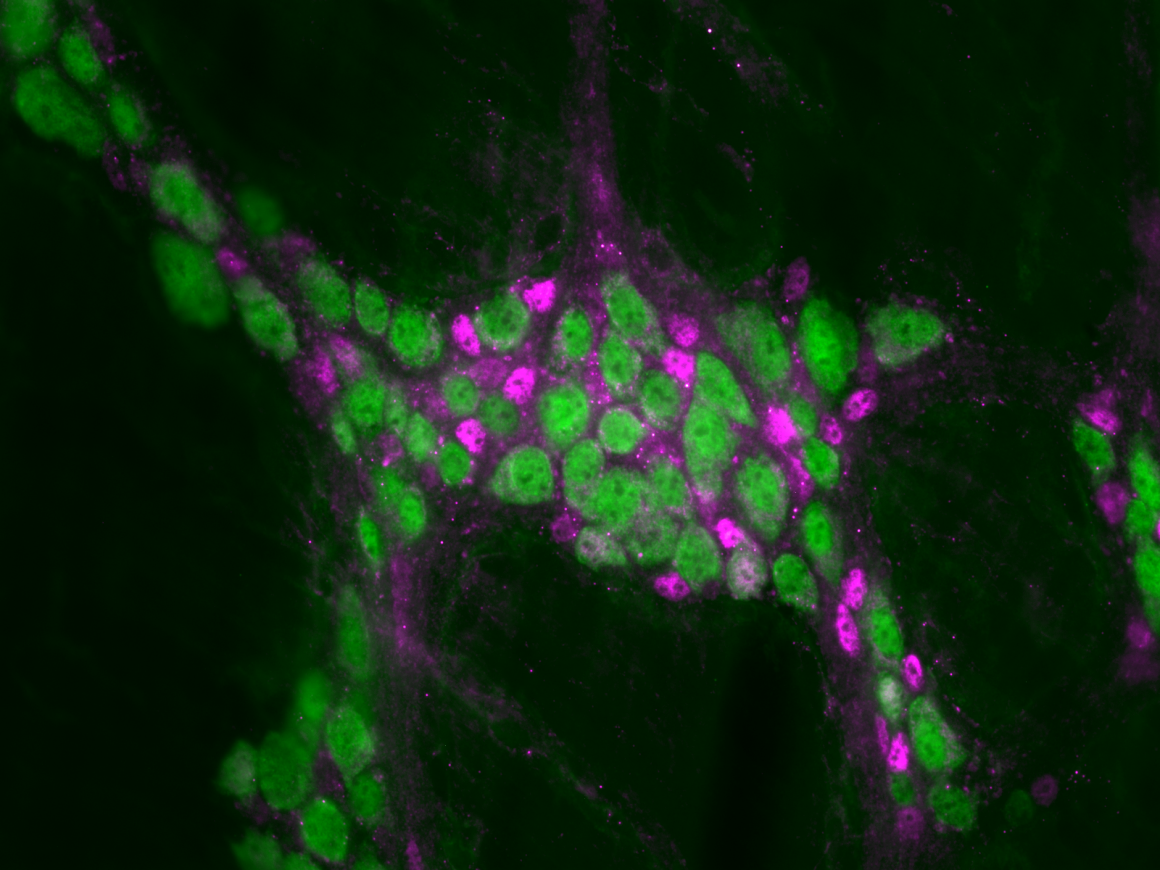
Gastrointestinal microbiota health linked to enteric nervous system
By Ramiro Bustamante Torres, January 10 2022—
At the end of October, the Snyder Institute for Chronic Diseases at the University of Calgary — in collaboration with the University of Colorado — published their findings on important factors that lead to the repair of the gut microbiome and its integrity. While the findings are in mice, this is a big step into diagnosing gastrointestinal diseases in humans.
The Gauntlet had an interview with the senior researcher, Dr. Keith Sharkey who is a member of the Snyder Institute for Chronic Diseases, the Hotchkiss Brain Institute and a professor of the Physiology and Pharmacology Department at the Cumming School of Medicine.
The published paper outlines the findings of the factors that are key to the repair and regeneration of neural glia of the gastrointestinal system. In short, the researchers treated a group of mice with antibiotics to reduce the microbiota which resulted in degradation of their enteric nervous system. Only until the regeneration of the microbiota had the researchers seen a recovery to the enteric nervous system.
“The fact that when we removed the microbiota, neurons were lost, wasn’t completely a surprise, because animals born in a germ-free state with no microbiota have less neurons,” said Sharkey. “What was exciting for us, is that within a very short space of time, when we reintroduce the microbiota normally, […] went from 99 per cent reduction back to normal levels. By just allowing normal recolonization to happen, the neurons came back to the same level. And that just took a few weeks, which demonstrates the remarkable plasticity of the gut nervous system, its ability to repair itself and respond in a condition.”

The findings of the paper state that the effects of antibiotic-treated mice were the gut intestinal system losing normal function regardless of sex. Effects of the treatment included slower transit times of fecal matter through the gut, higher permeability of the intestines and higher wet fecal matter. While the researchers were focused on the specific factors that are involved in gastrointestinal microbiota health, the findings can lead to further research into gastrointestinal diseases.
“The types of diseases that we’re very interested in and that we’re going to work […] would be conditions such as slow transit, constipation. It’s common in or relatively common, particularly in the pediatric population,” said Sharkey. “There are multiple forms of gut disorder associated with loss of neurons or loss of neuronal function. They tend to be clustered together in what are called disorders of gut-brain interaction used to be called functional bowel disorders. And of those irritable bowel syndrome is the most common.”
Sharkey said that although there is a large spectrum of disorders, there are two main disorders this research targets.
“We’re looking at the functional consequences of alterations in the enteric nervous system that may be modulated by the gut microbiome, which may be able to improve gut function. The other conditions that we’re interested in […] are inflammatory bowel diseases. And those include ulcerative colitis and Crohn’s disease, those are associated with a loss of neurons and also a dysbiotic enteric microbiome,” said Sharkey.
The findings of this paper were achieved by members of the University of Calgary taking part in the research. Sharkey had shared his thoughts on having university students take part in research such as this.
“Students are fundamental to what we do. Graduate students led the study. We also have […] summer students who are undergraduates. We also have undergraduate honours students in our lab all the time from the Bachelor of Health Sciences to the Bachelor of Neuroscience program. So undergraduate students really enhance the research environment. And I think that when they see exciting research, it inspires them to be in an institution that fosters the highest standards of academic excellence,” said Sharkey.
He also shared his thoughts on how students can get more involved with joining a lab with a professor in your class.
“You meet [ students] in the classroom. And you talk to them and you inspire the few in any one area, of course, there’s only going to be one or two people interested in the gut in the brain or in some specific aspect of engineering or, for that matter, creative art or music,” said Sharkey. “That student who gets excited by that professor that likes the cello or this particular style of art or this particular form of science is the student that will become the next leader in that field or potentially and of 100 students, I wouldn’t expect more than one or two to come and chat to me after a lecture and say, ‘Hey, I was actually really interested in that.’”
This is one of many leading research opportunities offered by the university and for students looking into joining a lab or starting their own research can find a chance by talking with their professor. For example, the Hotchkiss Brain Institute has members across nine faculties at U of C — including the Faculty of Kinesiology and the Faculty of Social Work. You can visit their website here. If you would like to know more about the Snyder Institute for Chronic Diseases, you can visit their website.
